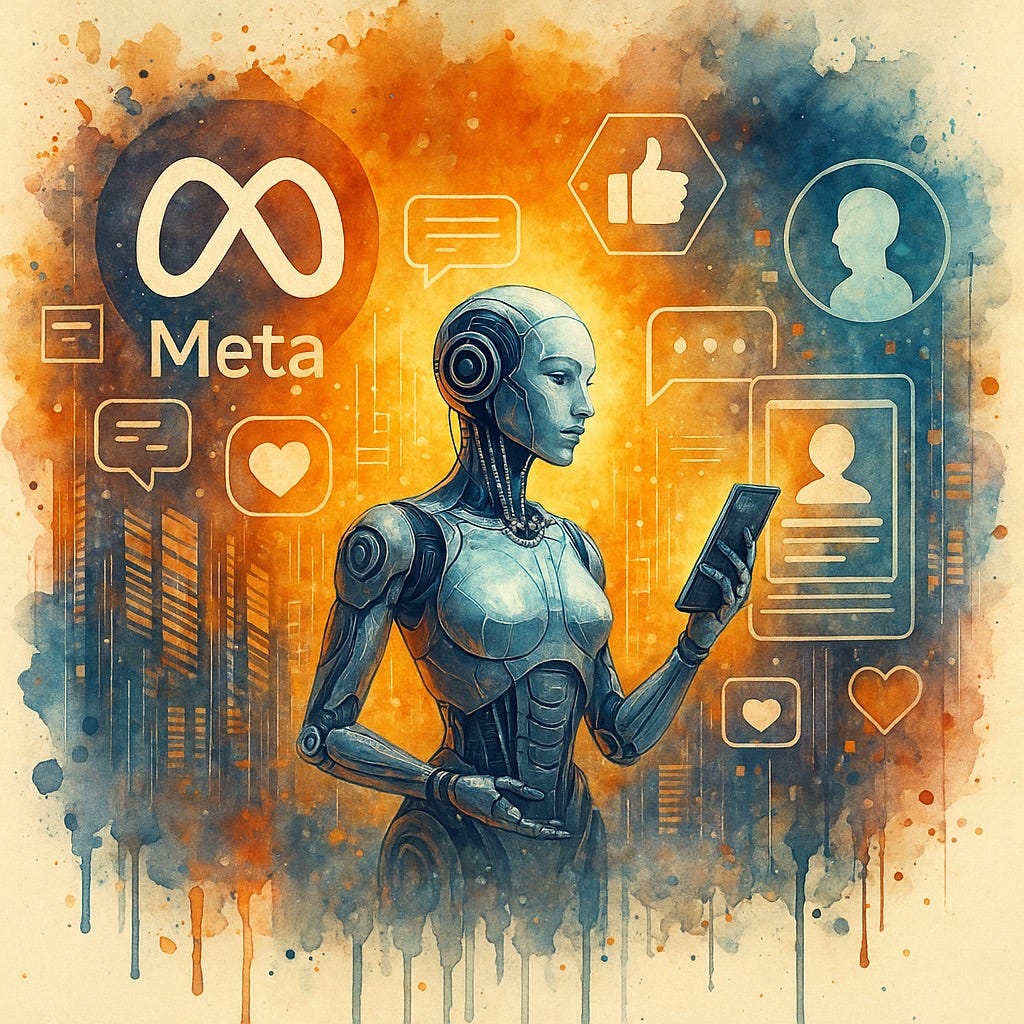Meta Just Launched Its ChatGPT Rival—and It’s Built to Know You
The Breakdown: Meta just stepped into the ring with OpenAI—and it didn’t come empty-handed.
At its first-ever developer conference (LamaCon, yes that’s real), Meta launched a standalone AI assistant called Meta AI, powered by its new Llama 4 model.
The pitch?
A hyper-personalized AI assistant that lives inside the apps you’re already addicted to: WhatsApp, Instagram, Facebook.
And unlike ChatGPT, Meta’s not just answering questions. It’s creating images, remembering personal details, talking back in voice mode, and pulling from your digital footprint to make it feel personal.
The Details:
Built on Llama 4: The latest version of Meta’s open-source foundation model powers the assistant.
Multi-modal capabilities: Meta AI can answer queries, generate avatars and emojis, and carry on voice conversations in real time.
Personalization engine: It draws on the data you’ve shared across Facebook and Instagram—like profile info and the content you engage with—to tailor its responses.
Social Feed Integration: The new “Discover” feed shows off what others are creating with the app (if they opt in), turning the assistant into more of a content playground than a pure tool.
Limitations: Currently, Meta AI doesn’t have web browsing capability—unlike ChatGPT with GPT-4o or Perplexity.
Why You Should Care: This is Meta’s first serious swing at owning a slice of the consumer AI space—and it’s a big one.
If you’re already deep in the Meta ecosystem, this assistant won’t feel like a new app.
It’ll feel like an extension of your digital identity.
And by blending social content, personal data, and AI generation into one experience, Meta’s not just competing with OpenAI… It’s trying to turn your social life into a training loop.
Enjoying Artificially 🤖 Intelligent?
Get the latest AI insights, breakdowns, and strategies delivered straight to your inbox.
Subscribe now and stay ahead of the curve.


